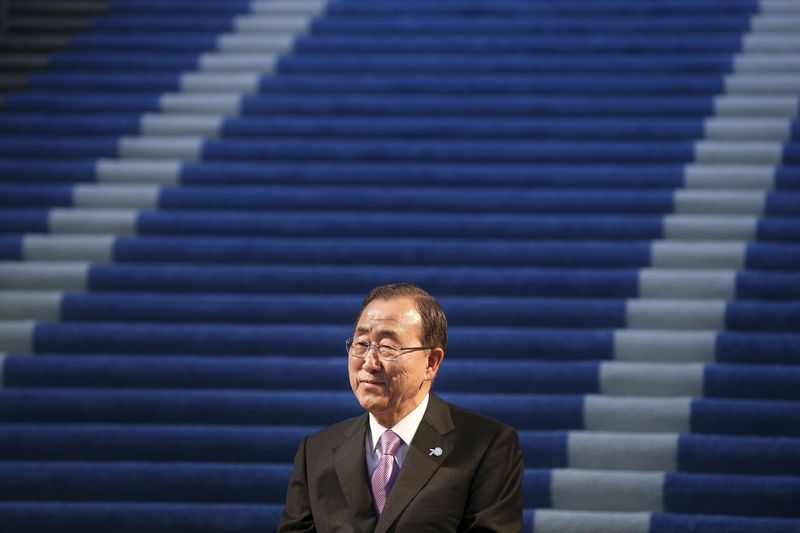By Neil Marks
Bridgetown, BARBADOS (Reuters) - U.N. Secretary-General Ban Ki-moon on Friday offered help to resolve a long-running border spat between Venezuela and its South American neighbor Guyana that heated up after oil was found in the disputed area in May.
Exxon Mobil Corp (NYSE:XOM) said it discovered oil off Guyana's coast, spurring complaints from Caracas that Guyana is unfairly exploiting a disputed territory that must be negotiated through a mechanism created via a 1966 treaty signed in Geneva.
Guyana's new government has attacked a subsequent territorial decree by Venezuelan President Nicolas Maduro as an attempt to annex its waters following the discovery.
"If agreeable, I may be dispatching a mission to both countries to find out how and in what way they are interested in UN Good Officer's role," Ban said, referring to the body's representative on the border dispute.
Norman Girvan of Jamaica, the United Nations' envoy to mediate a settlement on the issue, died in 2014 and was not replaced.
Ban was speaking during a summit of the 15-nation Caribbean Community (Caricom) bloc in Barbados, shortly after he met Guyana's new president David Granger.
"We have informed him (Ban) that the (Good Officer's) process is more or less exhausted and he has indicated his willingness to appoint a mission to come to Guyana," Granger told reporters on the sidelines of the conference, where he was hoping to get backing from fellow Caribbean countries.
The U.N. boss gave no time frame for sending teams to the two countries, though Granger said he expected them to move "quickly."
Ban said his chief of staff was due to meet with Venezuelan Foreign Minister Delcy Rodriguez later on Friday to get the green light on sending a mission.
The sparsely populated and dense jungle area known as the Essequibo encompasses an area equivalent to around two-thirds of Guyanese territory. It functions in practice as part of Guyana and shows no discernable trace of Venezuelan influence.
Guyana says Caracas agreed to relinquish the Essequibo following a ruling by an international tribunal in 1899, but that Venezuela later backtracked on that decision.

Venezuela says the 1899 ruling was unfair and insists the territory is still in dispute. Maps in Venezuela usually describe the Essequibo as the "reclamation zone."